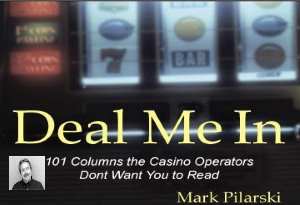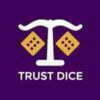If a player uses their club card while playing slots, does it have any effect on their results? Opposite that, can the casino reward a player who does use their card with jackpots you wouldn’t otherwise get if you didn’t use it? Mary Anne B.
Using a player’s club card has no effect on your results. The casino doesn’t compensate for the goodies they dole out for your loyal play by shorting you on jackpots or lower returns.
The random number generator doesn’t give one iota that Mary Anne is using a slot club card, and besides, differential paybacks are illegal in every land-based casino in America.
Some players seem to think that since they are accumulating comps on their club cards, the casino will make them pay for it with a lower return on the machine. Not a chance. Card club players are a casino’s most valuable asset, and the last thing casino management wants to do after building what they hope is a long-term relationship, is to shortchange a returning player.
As to your “opposite that,” the slot card in and of itself rewards loyal customers. There is no casino operator in a secret undisclosed location pressing a button so club card members get special jackpots. As stated above, random number generators determine jackpot winners, and again, anything else would be illegal.
When playing slots, should I set limits based on the number of losing spins, or should it be based on the amount lost? Nell F.
As your question states, Nell, there are two kinds of limits when playing slots, one called a losing (loss) limit, the other, a spinning limit.
Your cash on hand (bankroll), dictates the losing limit while the spinning limit is in regards to your gambling timeline on any one particular machine. It’s loss limits, setting the amount of money you are comfortable with losing that I find far more important.
So, Nell, when assessing any machine prior to playing, have you read the operating rules carefully and do you understand its true cost before actually inserting your first coin? Does your bankroll match up with the machine(s) you are playing on?
Say, for instance, you are a typical slot player on a 3-coin quarter machine, pushing the spin button every ten seconds, wagering 75 cents per push. Plan on betting $4.50 a minute, or $270 an hour. Since the average quarter machine returns approximately 92% over the long run, you will lose roughly $22 for every hour of play. A four-hour session is going to cost you, on average, $88. If you are at ease with an $88 loss, and a bankroll of at least $200 to carry you when the slot decides to be less charitable, then you should be fine.
As for spinning limits, a lot of players set a cutoff point and shift to another machine after a specific number of losing spins. The reason I don’t find spin limits as important as loss limits is because every spin is random, hence there is no mathematical reason to switch machines after any number of winning, or losing, spins. It doesn’t matter whether a machine hasn’t paid out after numerous spins, or has coughed up multiple payouts; the odds of landing a winning combination are the same on each and every whirl.
Yet, Nell, I realize that if a machine isn’t paying after an aggravating number of losing spins, players get agitated, so by all means, switch machines. But see this as an emotional reason to move, not one based on arithmetic.
Gambling Wisdom of the Week: “There are clubs that would have to close their doors without a slot machine.” –Mike Goodman, How to Win




















